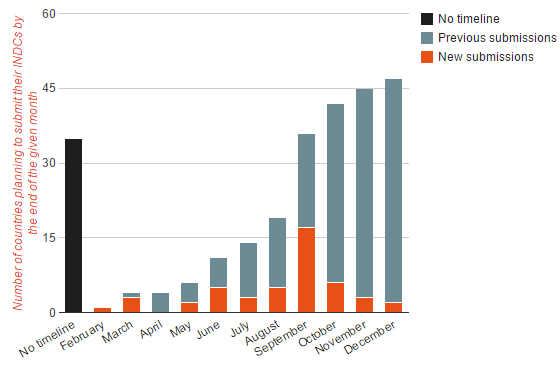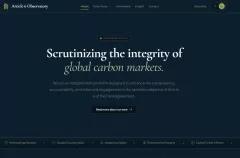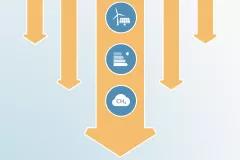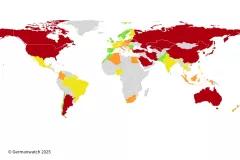The first results of NewClimate Institute’s research for UNFCCC and UNDP to track the preparation of INDCs are now published.
Last week, Switzerland became the first country in the world to submit their Intended Nationally Determined Contribution (INDC) to the UNFCCC’s INDC portal. A first wave is expected by end of March. A second wave of submissions is expected in September, as now revealed by research from NewClimate Institute.
All countries have been asked to publicly outline what actions they intend to take under a global climate agreement (an Intended Nationally Determined Contribution) which would ultimately be included in a new international climate agreement in December 2015. Additional proposals have been widely circulated, but not formally submitted, by China, the U.S. the EU, Chile, South Africa and the Dominican Republic. The Lima Call for Action encouraged countries “in a position to do so” to submit their INDCs by 31 March 2015. A second implicit submission deadline is 01 October 2015, after which submissions are still allowed but will not be included in the UNFCCC’s synthesis report, which will be made available to Parties in time for the 21st Conference of Parties in Paris, December 2015.
Research from NewClimate Institute for UNFCCC and UNDP has tracked the progress of INDC preparations worldwide, and collected insights and lessons learned from the countries’ preparation experiences. The first round of results was published on 4th March 2015 and includes information on the progress that 81 countries have made in the preparation of their INDCs. These results will be updated on a regular basis.

Figure 1: Timeline showing the accumulated number of INDC submissions in each month
Of the countries accounted for in the results (which altogether account for just over 50% of global GHG emissions), the data shows that over one third of countries are still yet to begin the INDC process. Roughly another third have initiated the national discussion, but not yet proceeded to the technical design. Figure 1 shows that very few countries intend to submit before 31 March 2015, with many planning submissions much later in the year, mainly in September. Nearly half of countries indicated that they have not yet set an internal timeline for their submission. The data varies somewhat per region; for instance, African countries tend to report the latest intended submission dates, with no consulted African countries intending to submit their INDCs before July.
The indicated timing of submissions is reflected in one of the main challenges that countries face in the preparation of their INDCs: approximately 85%[1] of countries feel challenged by the short timeframe available for the process. Other major challenges reported were lack of certainty and guidance on what to include in INDCs, difficulty to secure high-level political support, and limited expertise for the assessment of technical options. Despite the challenges faced with limited expertise, less a quarter of countries have already received international support specifically for the preparation of their INDCs. More than a quarter of countries indicate that they are still applying for international support.
Encouragingly, countries have indicated on a large majority that the INDC process has afforded the country multiple opportunities, specifically, the enhanced engagement of stakeholders in planning and improved domestic and international communication on climate change issues. Importantly, approximately three quarters of countries report that their INDC preparations have helped to accelerate national climate change policy processes. These benefits may become even more tangible in the coming months as countries continue to more advanced stages in their INDC preparations.
According to the first results, a wide range of INDC types can be expected from countries’ submissions. Approximately two thirds of countries report that their INDCs will include a long term goal for GHG emissions, whilst it is also clear most countries intend to include a mixture of components including non-GHG related outcomes, specific policies and actions, and broader plans for accelerating institutional development. The results show that a lot of countries currently envisage economy-wide targets as part of their INDCs and that they also consider the reporting of specific policies and actions as an integral part. Furthermore, over half of countries report that climate change adaptation plans will form a major component of their INDC.
The full results, aggregated at the global and regional level, are available to browse.







